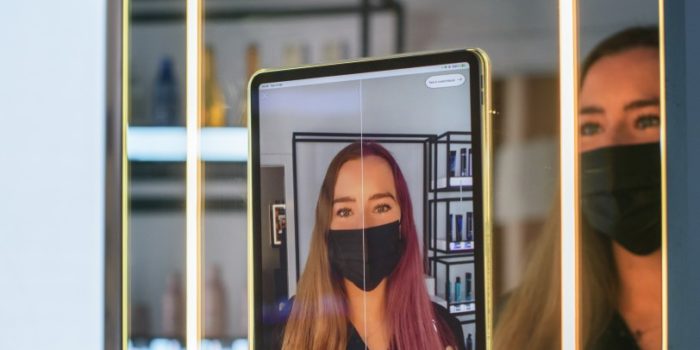1. Good Monday Morning
It’s April 26th. This is George writing to you Sunday as the Oscars roll and the new West Side Story trailer hits. We have to talk this week about how machine learning algorithms are messing with people and their ideas about AI beauty.
This week, every tech giant is reporting earnings, so there is sure to be a lot of information this week regarding Google, Microsoft, Apple, Facebook, Amazon, and Twitter. We’ll help distill the data for you next week.
Today’s Spotlight is 1,268 words — about a 5 minute read.
2. News To Know Now
Quoted: “If the individuals they’re monitoring are carrying out or planning criminal activity, that should be the purview of the FBI. If they’re simply engaging in lawfully protected speech, even if it’s odious or objectionable, then monitoring them on that basis raises serious constitutional concerns.” — Rachel Levinson-Waldman of the Brenan Center for Justice commenting about a Yahoo News expose regarding the U.S. Postal Service monitoring and reporting on social media use by citizens.
a) Amazon has announced that it will open a hair salon in London to test augmented reality technology. The move is yet another example of the company’s recent push into physical retail spaces. Also, Amazon announced it will implement contactless payment in seven Whole Foods stores near Seattle via devices that scan the palm of the customer’s hand. (Amazon)
b) Apple wants you to buy, but it’s not that simple. There are two lawsuits pending against it from people who terminated their accounts after paying for products on the platform. Consumers frequently download music they’ve purchased, but movies are often unavailable for download. Despite Apple’s claims, a California judge ruled recently that there is plausible reason to believe content bought through iTunes cannot be revoked. (THR)
c) In a Facebook hack video that has been circulating since Tuesday, a researcher showed how he can link up to 5 million email addresses to the users’ profiles. The researcher claims that he is demonstrating this vulnerability in Facebook, which could have abused users’ privacy and data. After Facebook rejected his claim for a software bug bounty, the man shows how he linked 6,000 accounts within three minutes. (Ars Technica)
Noteworthy
Apple to Reinstate Parler — Wall Street Journal
Snap Beats Estimates, Has 280 Million Daily Users — CNBC
Consumer Reports: Tesla Works With No Driver — Ars Technica
3. COVID-19 Tech News
Data — Daily Average (7 day trailing)
US Deaths — 722
US Hospitalizations — 44,367
US Vaccinated — 28.5%
Source
Great Trackers
Overview — Johns Hopkins
Vaccine Distribution — Washington Post
Vaccine Finder — CDC Project
Risk Calculator — Brown
New York Times tracker that allows you to customize a daily email with multiple cities and towns that you’re monitoring: Click here to configure.
Coronavirus & Tech News
Facebook Allows Staff To Continue WFH (Business Insider)
GM Announces Remote Work Plan (CNN)
India Orders Facebook, Twitter To Remove Posts – TechCrunch
4. Search Engine News
Google has delayed the implementation of their new signals that use page engagement metrics to determine rankings a full month into this summer. Called “Core Web Vitals,” Google announced that the page experience update will begin gradually in mid-June and continue into August.
Google is also making changes to ads that appear in search results. The biggest change is concerning health insurance providers. “We will only allow ads from government exchanges, first-party providers and licensed third-party brokers,” said Google executive Terri Ozorowski-Ghen. G2 and Google have partnered to run the new health insurance advertiser certification program, modeled after similar programs for pharmacies and social advocacy groups.
Users may also see a new type of advertisement soon, because Google is also experimenting with using dealer inventories directly in search engine results. SEO Roundtable published a screenshot of new and used car listings in suburban Boston.
5. In The Spotlight — AI Beauty
Beauty is in the eye of the beholder, and it is no different for artificial intelligence. The more companies develop machine learning and other AI advances, the more they turn to assessing human appearance. They are offering software to score beauty rather than match identical faces. Critics say these products are flawed — ageist, racist, unrealistic expectations setting — but that’s not stopping them from launching many new products.
First, there was the airbrushing and the Photoshopping. Now artificial intelligence is here to critique appearances. Since 2017, technology company Face++ has offered a product called Beauty Score. The company says the software’s use cases include matchmaking and cosmetic sales.
It can change the way people shop for cosmetics and beauty products since it predicts one’s skin tone, age, gender, height and weight. Proponents say it is no different from using images to select tailored clothing.
Journalist Tate Ryan-Mosley at MIT Technology Review has written multiple articles that look hard at how industry leverages AI and Beauty. Recently, she tried an AI beauty service that identified 10 possible flaws, even smile lines which the audit said might require medical attention.
Companies like Amazon moving into augmented reality can have detrimental real-world repercussions. In 2016, The Guardian reported that an algorithm judged a beauty contest with 6,000 entries. Forty-four winners were declared and only one had dark skin. Several months later, Cover Girl launched “Custom Blend,” a direct-to-consumer sales app that used similar algorithms.
There are many examples of companies like Cover Girl that take advantage of the fact that hundreds of millions of people around the world use social media AI beauty filters, harming people’s self-esteem via algorithms that have their own sense of beauty.
Be vigilant. And check out the brand-new Dove commercial below.
6. Debunked — President Biden Still Allowed at Pentagon
One of the hoax news sites we’ve written about before is getting social media attention for a made-up story that alleges President Biden was denied entry to the Pentagon.
Reuters has the fact check about a news site that often prints tabloid-like stories and clams to be satire.
7. Following Up — Autonomous Vehicles
We’ve written extensively (including last week) about autonomous vehicles. The Harris Poll people were right there with us. Their latest survey on the topic suggests Americans are intrigued but badly misinformed about the current state of these vehicles.
8. Protip — Zoom Adds Vanishing Pen & All Emoji
Toms Guide is out with details about cool new features including a “vanishing pen” that allows annotations to disappear in a few seconds. That sounds amazing for scribblers like me. Zoom has also freed the emoji. Any of the chat-based emoji can now be used in the meeting–although hosts can turn that off.
9. Screening Room – Dove’s Reverse Selfie
10. Science Fiction World — RoboBark, the NYPD Police Robot Dog
I’ll be really upset if the New York Police Department messes up this opportunity to creatively name their police robot dog. I’m already refusing to link to maker Boston Dynamics who calls it Spot. Here’s coverage that includes video in Gothamist.
11. Coffee Break — Macro Video
The Reuters Science News Twitter feed published the amazing macro videos of Ole Bielfeldt as he zooms into pencils, a leaf, and other ordinary items. There are six videos to enjoy.
12. Sign of the Times – Zoom Cat


Pingback: Apple & Facebook Fight Explained - Spotlight #381 | Silver Beacon Marketing